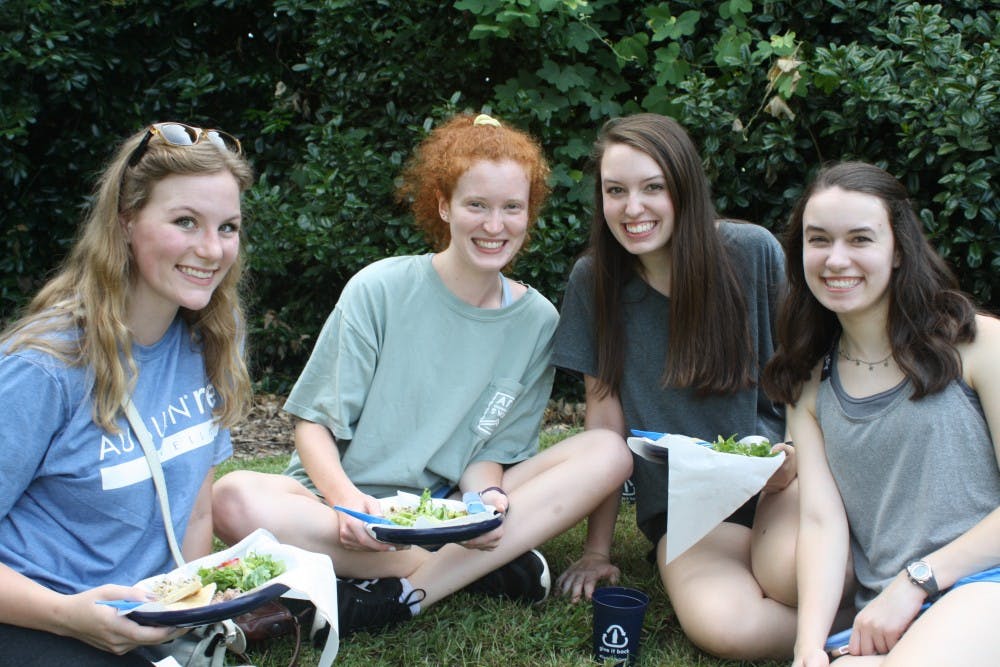Many sustainability organizations get labeled as green, but Auburn’s Office of Sustainability is going for gold.
Auburn is a member of the Association for the Advancement of Sustainability in Higher Education. As an active member, the University has the option to do a Sustainability Tracking Assessment System assessment every three years.
The assessment measures four areas on campus: administration, engagement, academics and operations.
The University gets points based on performance in each category to eventually receive a holistic picture of sustainability on campus.
Amy Strickland, program manager for Office of Sustainability, said that using the STARS assessment is a growing trend not only across the country, but across the world.
“It’s become a way for us to benchmark our performance against peer institutions,” Strickland said. “So, not only can we see how we’re doing on our own campus, but we can also see how we’re stacking up relative to other institutions of similar size or nature to Auburn.”
Following the most recent assessment, which was conducted in 2015, Auburn received a silver-star rating.
“We’re right in the middle of the pack,” said Jennifer Morse, communications and outreach manager for the Office of Sustainability. “We’re average. We’re not leading, and we’re not trailing.”
However, Strickland, who works directly on the operations data collection, added that in some categories, Auburn performs as well as anyone.
“For instance, we do really, really well when it comes to the credits related to transportation and transportation services,” Strickland said. “We don’t do so well when it comes to questions and credits related to our greenhouse gas emissions.”
The assessment is almost entirely based on the data gathered in the 2015 assessment, so the office will have a much better picture of the efforts made on campus when the results come back in January.
“If we’re not gold, I think we will be close to gold in our status, and that’s what we were shooting for,” Strickland said. “Not necessarily as a formal goal of Auburn University, but our office and the number of folks we have to work with on all these various issues, it was kind of our unstated goal of what can be done to get starred goal.”
It becomes increasingly difficult to make progress in sustainability because as technology evolves, science becomes more aware of how everything is related, and the bar gets raised, Strickland said.
“If we did everything exactly as we did three years ago, we would get a lower score,” Morse said.
For example, in the new STARS assessment, universities can receive extra credit for getting a third party to review the data after submitting it. For the most transparency possible, Auburn is getting the data collected to be reviewed by the Office of Audit, Compliance and Privacy.
“We’re at the point as an institution where we’ve identified and taken care of a lot of the low-hanging fruit that is out there, and so what’s left to do is the larger, more systemic solutions that we need to find,” Morse said.
For the Office of Sustainability, the biggest benefit to going through the STARS assessment is being able to create rapport between different and potentially unrelated areas of campus. Strickland said many people don’t even realize the possibility of working with sustainability until they are approached.
“They get excited about being a part of something bigger than just the regular work they’re doing on a day-to-day basis,” Strickland said. “Seeing their work on a broader context adds a whole other layer and dimension to all of the great things they’re already doing.”
Do you like this story? The Plainsman doesn't accept money from tuition or student fees, and we don't charge a subscription fee. But you can donate to support The Plainsman.





